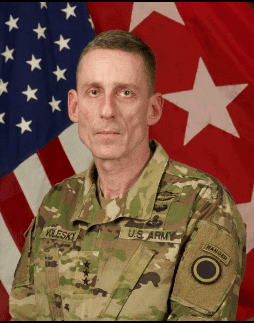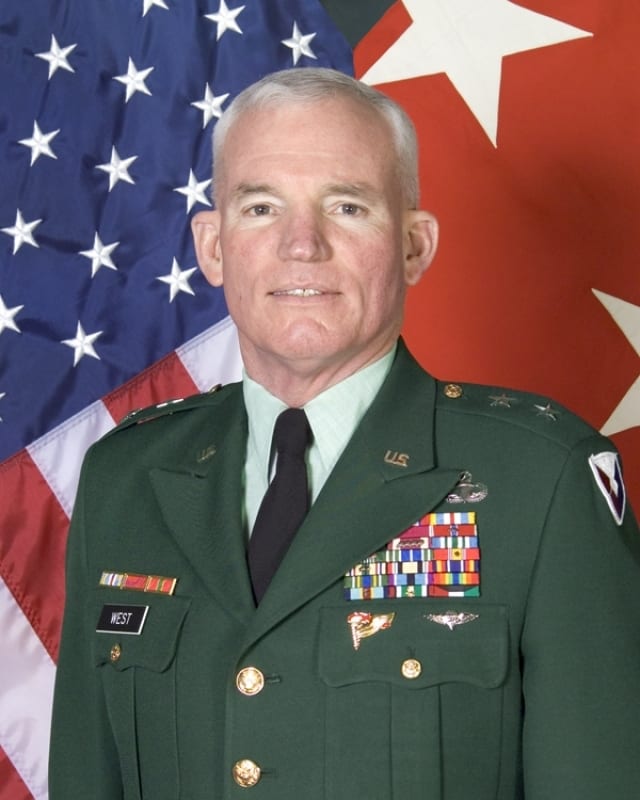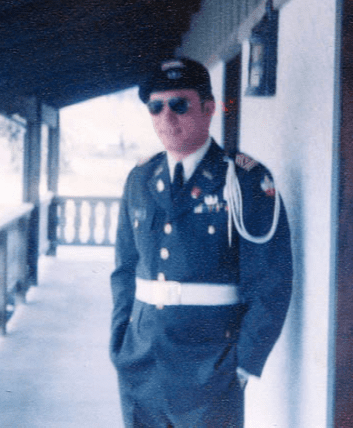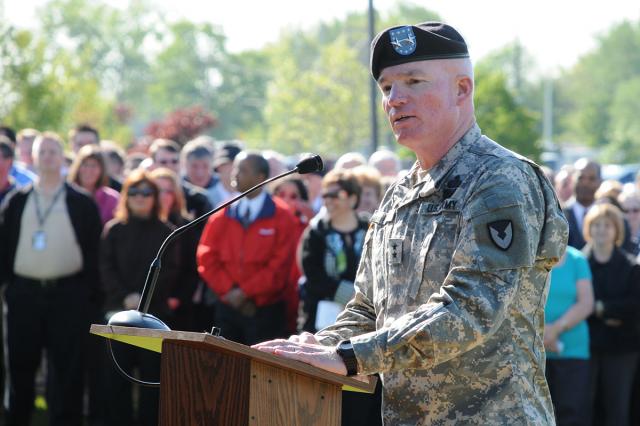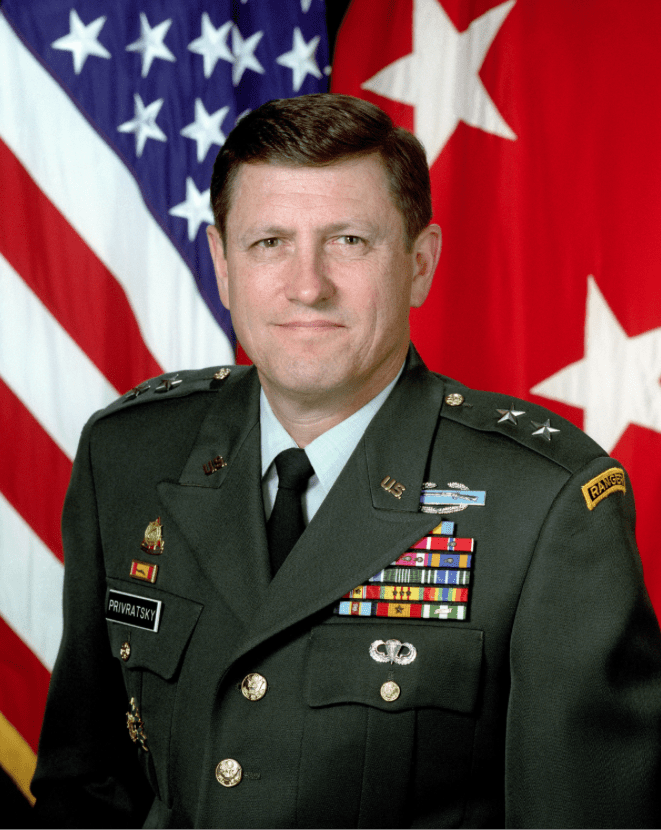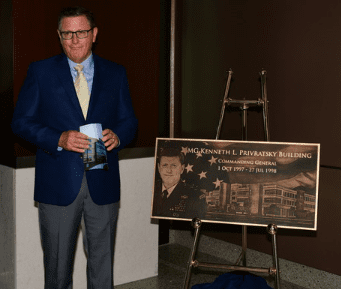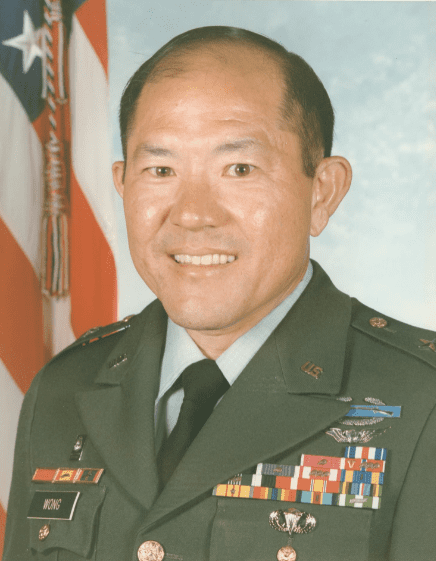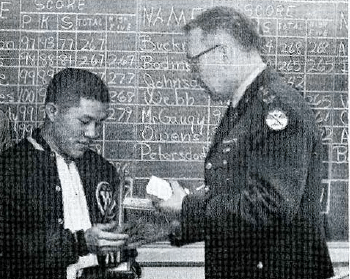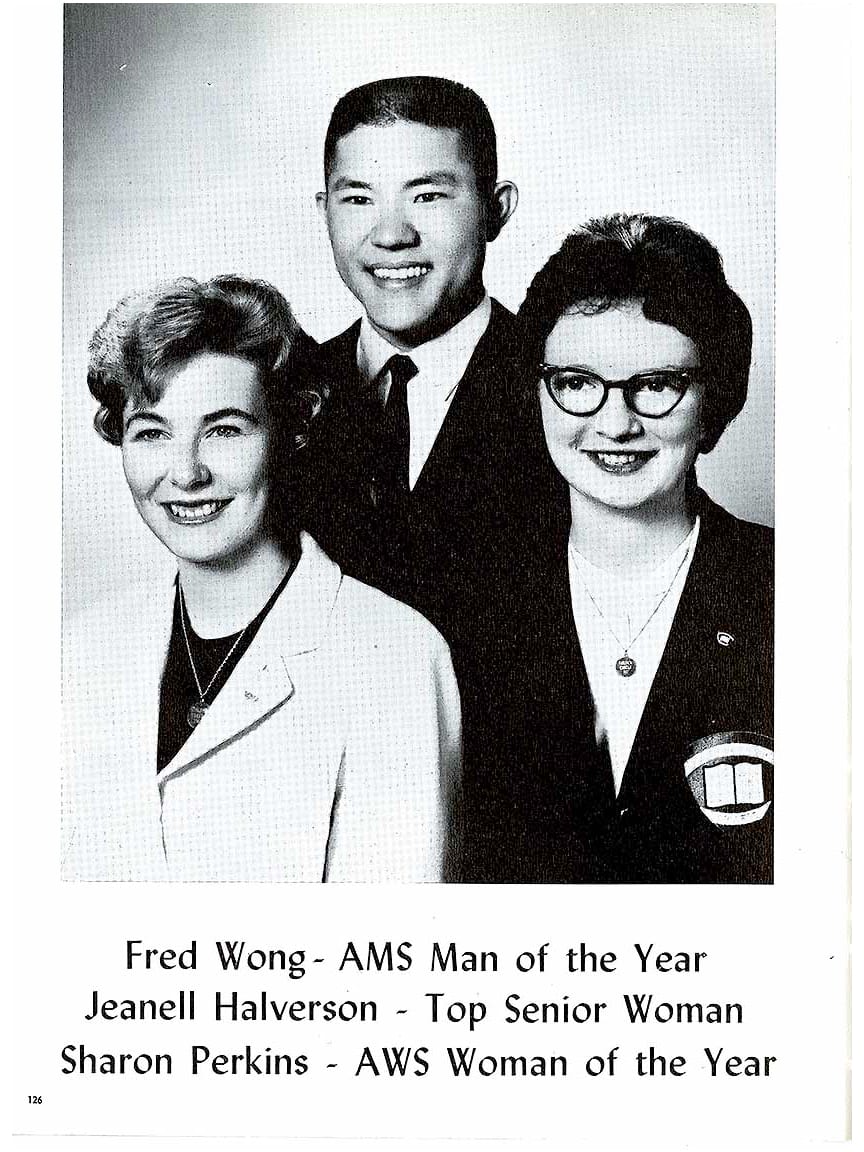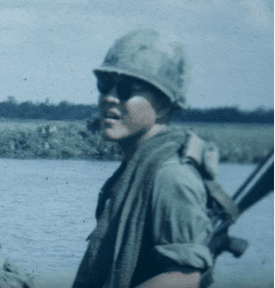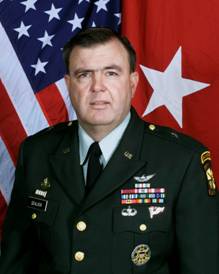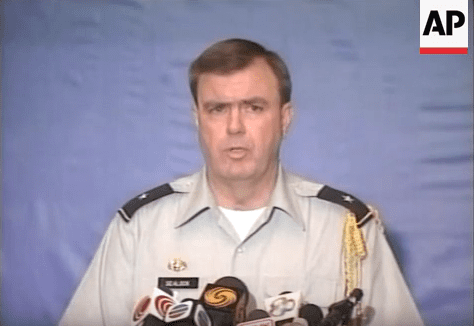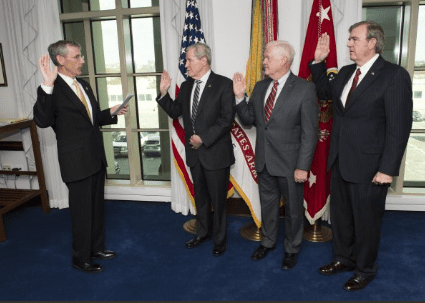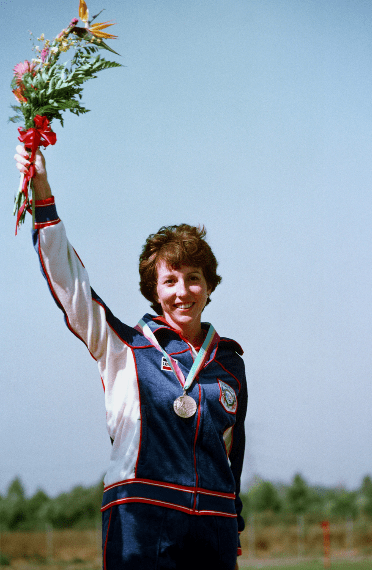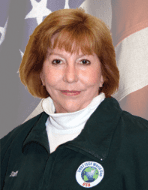Lieutenant General Gary J. Volesky
Commanding General
I Corps Joint Base Lewis-McChord
EWU ROTC Class of 1983
Silver Star

Lieutenant General (LTG) Volesky is from Spokane, Washington and is a Distinguished Military Graduate of Eastern Washington University (EWU). His education includes a Bachelor of Arts Degree from EWU (1983), a Master’s Degree in Strategic Studies from the Air War College, and a Master’s Degree in Near Eastern Studies from Princeton University. He is a graduate of the Infantry Officer Basic and Captain’s Career Courses, the Arabic Studies program at the Defense Language Institute, the Army’s Command and General Staff College, and the Air War College, Basic Course and Ranger School in 1984. LTG Volesky was assigned to 4th Battalion, 54th Infantry (Mechanized) at Fort Knox, Kentucky, where he served as a mechanized rifle platoon leader and scout platoon leader. In 1986, LTG Volesky was transferred to Fort Lewis, Washington where he served in 2nd Battalion, 75th Ranger Regiment as a rifle platoon leader, support platoon leader, and Assistant S4. LTG Volesky then served as the S1 in 2nd Battalion, 23rd Infantry (Motorized).
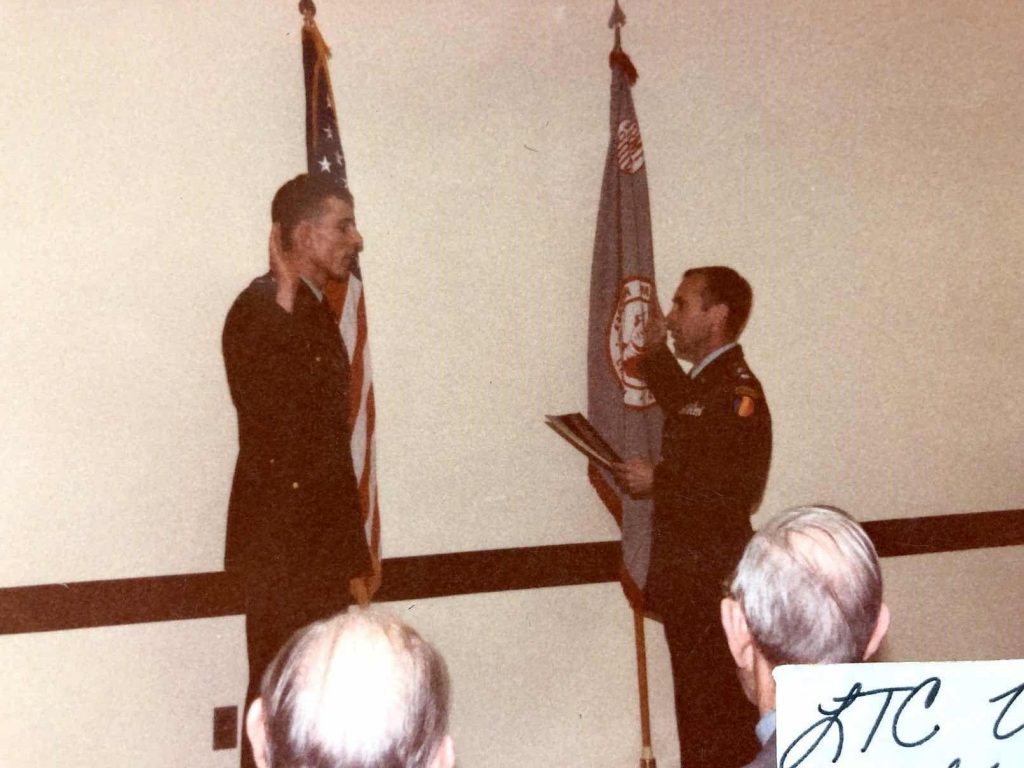
The then Cadet Gary Volesky (left) is commissioned as a Second Lieutenant in 1983 by EWU Army ROTC Professor of Military Science Lieutenant Colonel Ronald Walter.
Following attendance at the Infantry Captain’s Course, LTG Volesky commanded D Company, 5th Battalion, 8th Infantry Division (Mechanized) in Mainz, Germany. He assumed command of the Long Range Surveillance Unit for 3d Armored Division during Operations DESERT SHIELD and DESERT STORM. LTG Volesky then served as the Ranger Regiment Planner for V Corps in Frankfurt, Germany.
After completion of Command and General Staff College, LTG Volesky returned to the Ranger Regiment and served as the Liaison Officer and Battalion Operations Officer for 3d Battalion, 75th Ranger Regiment at Fort Benning, Georgia. In 1999 LTG Volesky was assigned to the Ranger Regiment as the Senior Liaison Officer, LTG Volesky then served as the Chief of Infantry Doctrine at the United States Infantry School.
In June of 2002, LTG Volesky assumed command of 2d Battalion, 5th Calvary Regiment, 1 Cavalry Division at Fort Hood, Texas. He deployed the battalion during OPERATION IRAQI FREEDOM II, and conducted combat operations and stability operations in Sadr City, Iraq from March 2004 to March 2005. His unit’s deployment to Iraq became the subject of a National Geographic Channel mini-series.
After completion of the Air War College, LTG Volesky returned to Fort Hood, Texas and deployed to Iraq with III Corps and served as the Corps Deputy Chief of Staff. LTG Volesky commanded the 3d Heavy Brigade Combat Team, 1st Calvary Division in March 2008. He deployed the Brigade and conducted combined full spectrum operations with Iraqi Security Forces in Mosul and other areas within the Ninewa province of Iraq, from December 2008 to December 2009.
LTG Volesky was the Deputy Commanding General (Maneuver), 1st Cavalry General Division, Fort Hood, Texas, 1st Cavalry Division/Combined Joint Task Force-1, OPERATION ENDURING FREEDOM, Spring of 2011 to June of 2014.
LTG Volesky assumed command of the 101st Airborne Division (Air Assault) at Fort Campbell on June 20, 2014. This command included a humanitarian assistance deployment to Liberia in support of OPERATION UNITED ASSISTANCE, and a deployment to Iraq in support of OPERATION INHERENT RESOLVE. LTG Volesky in 2016 took command of I Corps at Joint Base Lewis-McChord.

Maj. Gen. Gary Volesky, commander of Joint Forces Command – United Assistance and the 101st Airborne Division (Air Assault), delivers remarks during the 101st’s color casing ceremony held at the Barclay Training Center Monrovia, Liberia, Feb. 26, 2015. .
LTG Volesky’s awards and decorations include: The Distinguished Service medal, Defense Superior Service Medal, Silver Star, Legion of Merit, Bronse Star (4OLC), Purple Heart, Defense Meritorious Service Medal, Meritorious Service Medal (1OLC), Army Commendation Medal (4OLC), Army Achievement Medal (1OLC), NDSM (1 bronze star), Southwest Asia Service Medal (3 bs), Afghan Campaign Medal (2 bs), Iraq Campaign Medal (3 bs), Inherent Resolve Campaign Medal, GWOT Expeditionary Medal, GWOT Service Medal, The Army Service Ribbon, and the Overseas Service Ribbon (6th Award).
You can see the rest of the members of our EWU Military Science Hall of Fame at the below link:
